1. Les Demoiselles d’Avignon – Pablo Picasso
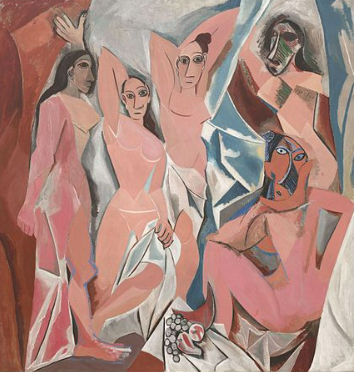
Artist: Pablo Picasso
Date: 1907
Where to see it: Museum of Modern Art, New York City
“Les Demoiselles d’Avignon” is a landmark painting by Pablo Picasso, completed in 1907. It depicts five nude female figures in a brothel, characterized by sharp angles and distorted forms influenced by African and Iberian art. The painting is considered a seminal work in the development of Cubism, a revolutionary art movement of the 20th century. Picasso’s innovative approach to perspective and form challenged traditional artistic conventions and paved the way for modern art movements. The painting’s controversial subject matter and radical style initially shocked viewers but eventually came to be recognized as a cornerstone of modern art.
If you want to know Picasso’s another Cubist painting, “Guernica“, please click here.
2. Houses at I‘Estaque – Georges Braque
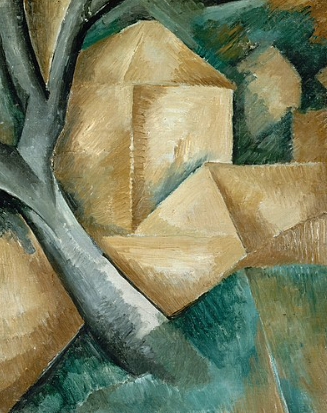
Artist: Georges Braque
Date: 1908
Where to see it: Kunstmuseum Bern, Switzerland
“Houses at L’Estaque” is a notable painting by Georges Braque, completed in 1908. It depicts a picturesque scene of houses along the coast of L’Estaque near Marseille, France. The painting showcases Braque’s early exploration of Cubism, a revolutionary art movement he co-founded with Pablo Picasso. In this work, Braque employs geometric shapes and fragmented forms to depict the landscape, breaking away from traditional perspective and representation.
“Houses at L’Estaque” is a testament to Braque’s contribution to the development of modern art and his role as a pioneer of the Cubist movement. The work inspired the name of this iconic movement. Critic Louis Vauxcelles commented that Braque reduced everything to “geometric outlines, to cubes”, which came to be later known as Cubism.
3. Still Life Before an Open Window, Place Ravignan – Juan Gris
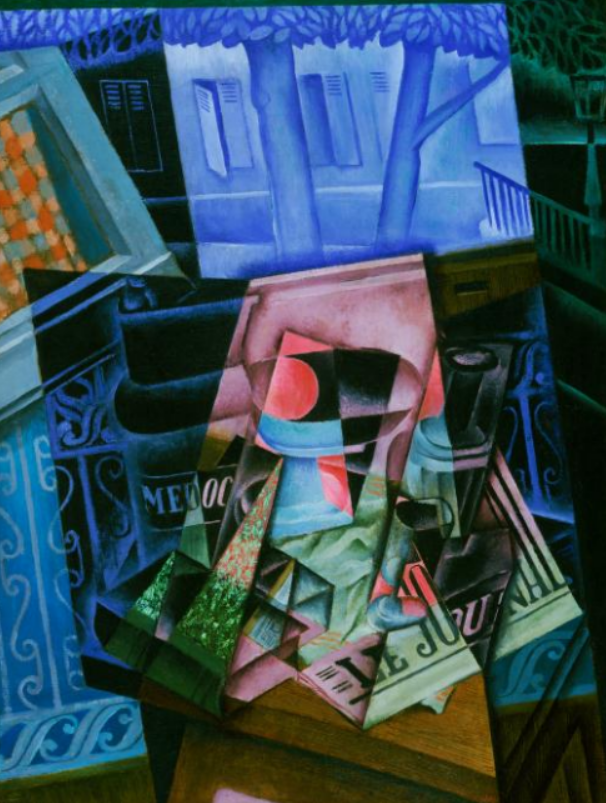
Artist: Juan Gris
Date: 1915
Where to see it: Philadelphia Museum of Art, Philadelphia
“Still Life Before an Open Window, Place Ravignan” is a famous oil painting by Spanish artist Juan Gris. The work depicts a complex still life composition set against an open window overlooking Place Ravignan in Paris. Gris employs his signature Cubist style, utilizing geometric shapes and bold colors to convey the scene’s essence. The painting features various objects such as a bottle of Medoc wine, a glass, and a newspaper, arranged in a carefully constructed manner. Gris attempts to combine indoor and outdoor space in a Cubist framework, suggesting a connection between the mundane objects within the room and the bustling city outside.
4. Tea Time – Jean Metzinger
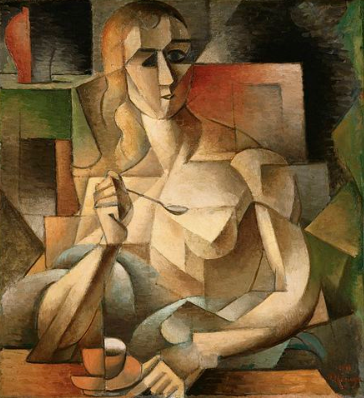
Artist:Jean Netzinger
Date:1911
Where to see it: Philadelphia Museum of Art, Philadelphia
“Tea Time” is a Cubist masterpiece by a French artist Jean Metzinger that is also known as “Woman with a tea spoon”. The painting portrays a nude woman holding a spoon, seated at a table with a cup of tea. Metzinger employs Cubist techniques to depict the objects from multiple viewpoints simultaneously, creating a dynamic composition. When “Tea Time” was first displayed, it was dubbed by a famous art critic as “The Mona Lisa of Cubism”. With the reference to Leonardo da Vinci’s masterpiece, the work was considered to be the most important artwork of Cubism until the movement gained worldwide attention.
5. Nude Descending a Staircase, No. 2 – Marcel Duchamp
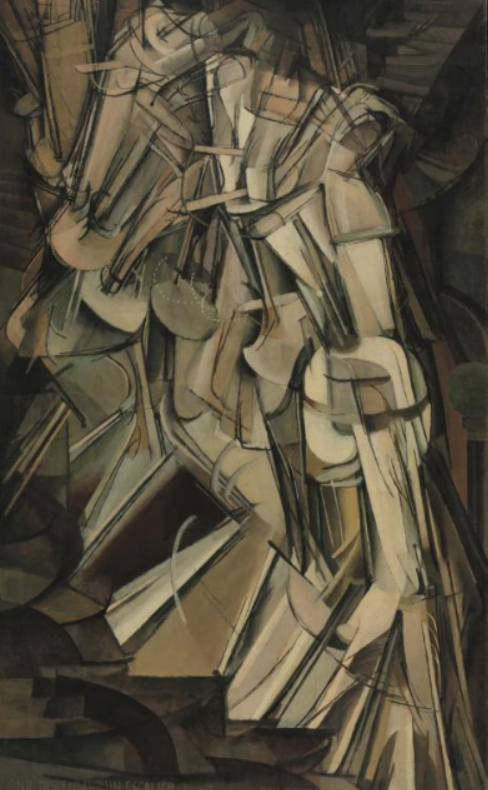
Artist: Marcel Duchamp
Date:1912
Where to see it: Philadelphia Museum of Art, Philadelphia
